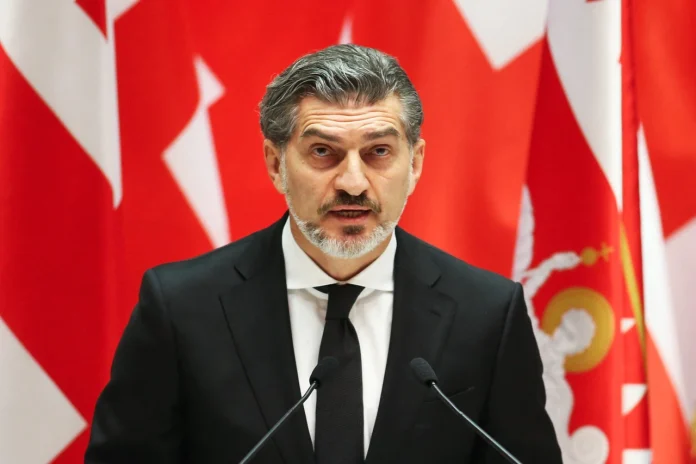On Sunday, 29 December, Mikhail Kavelashvili was sworn in as president of Georgia, a move that has intensified the ongoing political tensions. This took place shortly after outgoing president Salome Zurabishvili, a pro-EU figure, declared herself the only legitimate president, further escalating the divide.
Political divide and legitimacy dispute
Zurabishvili addressed her supporters outside the presidential palace. She stated, “I remain the only legitimate president. I will leave the palace with your trust, the flag, and legitimacy.” Following her speech, she joined thousands of her supporters in protest.
Kavelashvili took the oath in a private ceremony at parliament. Foreign ambassadors did not attend after they decided to boycott the event. In his address, Kavelashvili highlighted Georgia’s “traditions, values, national identity, family, and faith.” His inauguration has deepened the ongoing political crisis. Furthermore, the suspension of EU talks and large pro-EU demonstrations have intensified the tensions.
Zurabishvili has publicly argued that Kavelashvili’s election is invalid due to fraud during the October vote. Nevertheless, the ruling Georgian Dream party insists that his election is legitimate. The party also asserts that it is the only force capable of securing peace and stability.
Rising tensions and calls for new elections
Georgia faces a pivotal moment. Once viewed as a democratic and pro-Western leader in the former Soviet states, the country now experiences significant political divisions. Zurabishvili has become the symbol for pro-EU protesters. These demonstrators, along with opposition parties, support her and demand a rerun of the election. However, Prime Minister Irakli Kobakhidze has rejected the idea of new elections.
The crisis deepened on 28 November when Kobakhidze announced that Georgia would delay opening EU accession talks until 2028. This announcement sparked protests, which have continued daily. Riot police responded by using tear gas and water cannons to disperse the crowds. Over 400 people were arrested, with many protesters reporting police brutality.
In response, the international community condemned the actions. The United States and several European nations imposed sanctions on Georgian Dream officials. In particular, the US targeted Bidzina Ivanishvili, the founder of the party, accusing him of undermining Georgia’s democratic future for the benefit of Russia.
